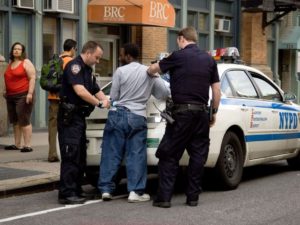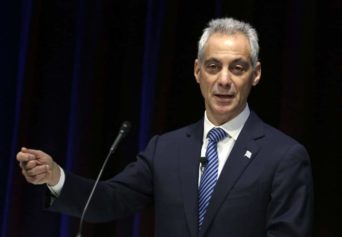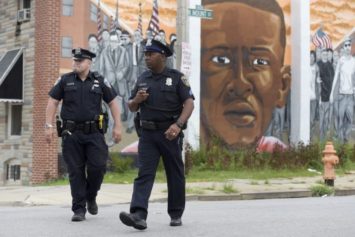As part of a legal settlement announced Thursday, Feb. 2, the New York Police Department agreed to limit its practice of stop-and-frisk in and near private apartment buildings across the city.
Thursday’s settlement, the latest in series of lawsuits surrounding the controversial tactic, addressed police stops in areas surrounding buildings whose landlords asked authorities to conduct patrols and detain trespassers as a part of the city-run Trespass Affidavit Program, The New York Times reported. The agreement restricts cops from approaching, questioning or arresting people just because they’re walking in or around the private buildings, requiring them to apply the same constitutional protections they would in other parts of the city.
Critics of this particular element of New York City’s stop-and-frisk policies saw the Trespass Affidavit Program as a black eye on the area’s crime-fighting efforts, charging that residents, as well as their friends and family members, were stopped and searched by police just steps from their apartments. Lawyers even contested that officers stopped and frisked people for hanging in or around the lobbies of enrolled buildings or questioned them for trespassing if they walked out of one of the buildings.
“What was driving all of that was a general belief by police officers that people who were in or near these buildings could be stopped without anything else,” Christopher Dunn, associate legal director for the New York Civil Liberties Union, told The New York Times. “That is at the heart of these new standards, which make it clear police officers cannot do that.”
Stop-and-frisk is seen as one of the most contested police tactics utilized by officers across the country, as it allows them to stop and search individuals who they deem “suspicious” for no plausible reason. Critics of the practice also have argued that the tactic is discriminatory in nature because it bolsters racial profiling and is disproportionately wielded against African-Americans and Latinos.
In 2013, federal New York Judge Shira A. Scheindlin ruled stop-and-frisk unconstitutional, but the ruling more specifically addressed police stops that occurred near private buildings in the Bronx, The New York Times reported. Thursday’s settlement challenges the broader scope of the city’s stop-and-frisk efforts, curbing the practice not only in and around enrolled buildings in the Bronx, but other boroughs as well. As part of the agreement, city officers also agreed to undergo additional training and supervisory methods.
“This agreement appropriately balances the public’s interest in effective law enforcement with the need to respect the constitutional rights of building residents and their guests,” the city’s law department said in a statement.
City officials said overall crime rate has steadily declined in recent years and that stops across NYC also have plummeted as a result of the lawsuit and other litigation challenging police stop-and-frisk tactics. Despite the falling crime rates, President Donald Trump has been a staunch supporter of stop-and-frisk, asserting that its effective in preventing crime.
“One of the things I’d do, is I’d do stop-and-frisk,” Trump said during a town hall event last year when he was asked how he would prevent violence in high-crime cities like Chicago. “We did it in New York and it worked incredibly well and you have to be proactive.”
Local civil rights groups said it’s difficult to determine exactly how many stops police officers still make in buildings enrolled in the trespass program, adding that the project unequally impacted tenants in low-income Black and Latino neighborhoods.
“We’re talking about stops and frisks and arrests in the sanctity of people’s homes that have had an incredible human toll on the relationship between the community and the police,” said Johanna Steinberg, director of the Impact Litigation Practice at the Bronx Defenders, which also was involved in the lawsuit. “This [agreement] will create accountability and improved training and oversight to ensure these changes are meaningful, systematic and longstanding.”
The settlement must still be approved by the Federal District Court in Manhattan, according to The New York Times. It also requires three years of oversight by court-appointed monitors. The 13 plaintiffs in the case are expected to be compensated $235,000 from the NYPD.


